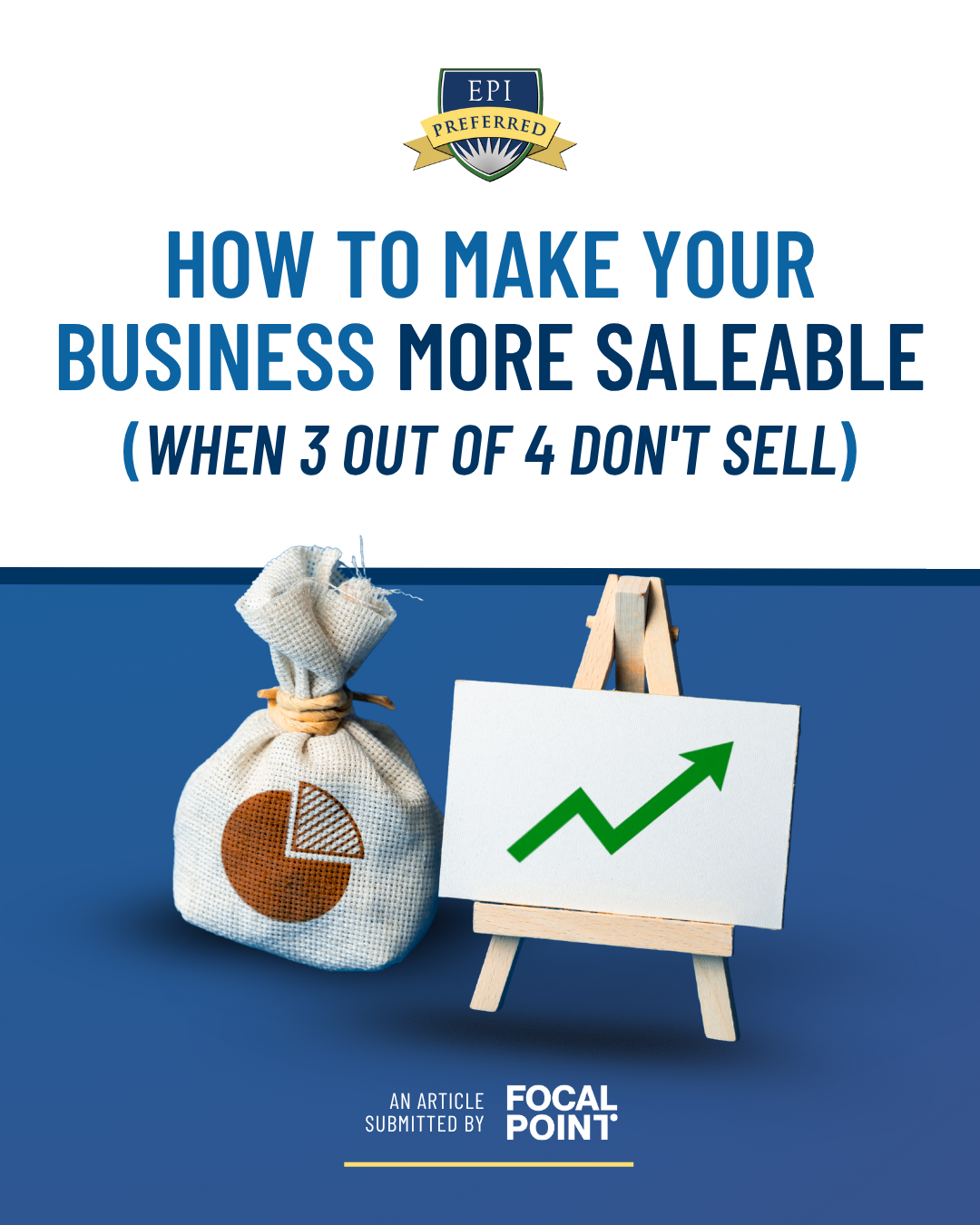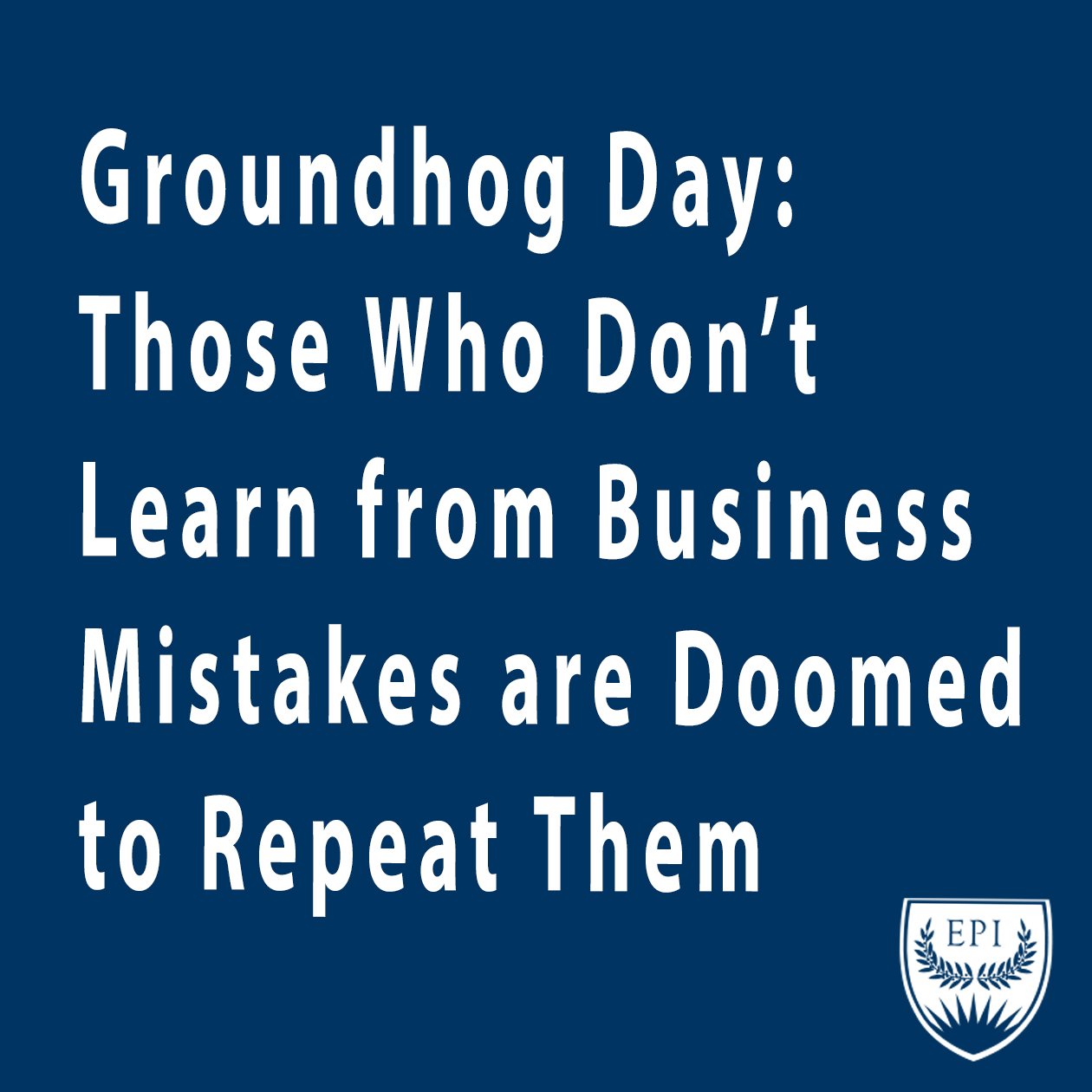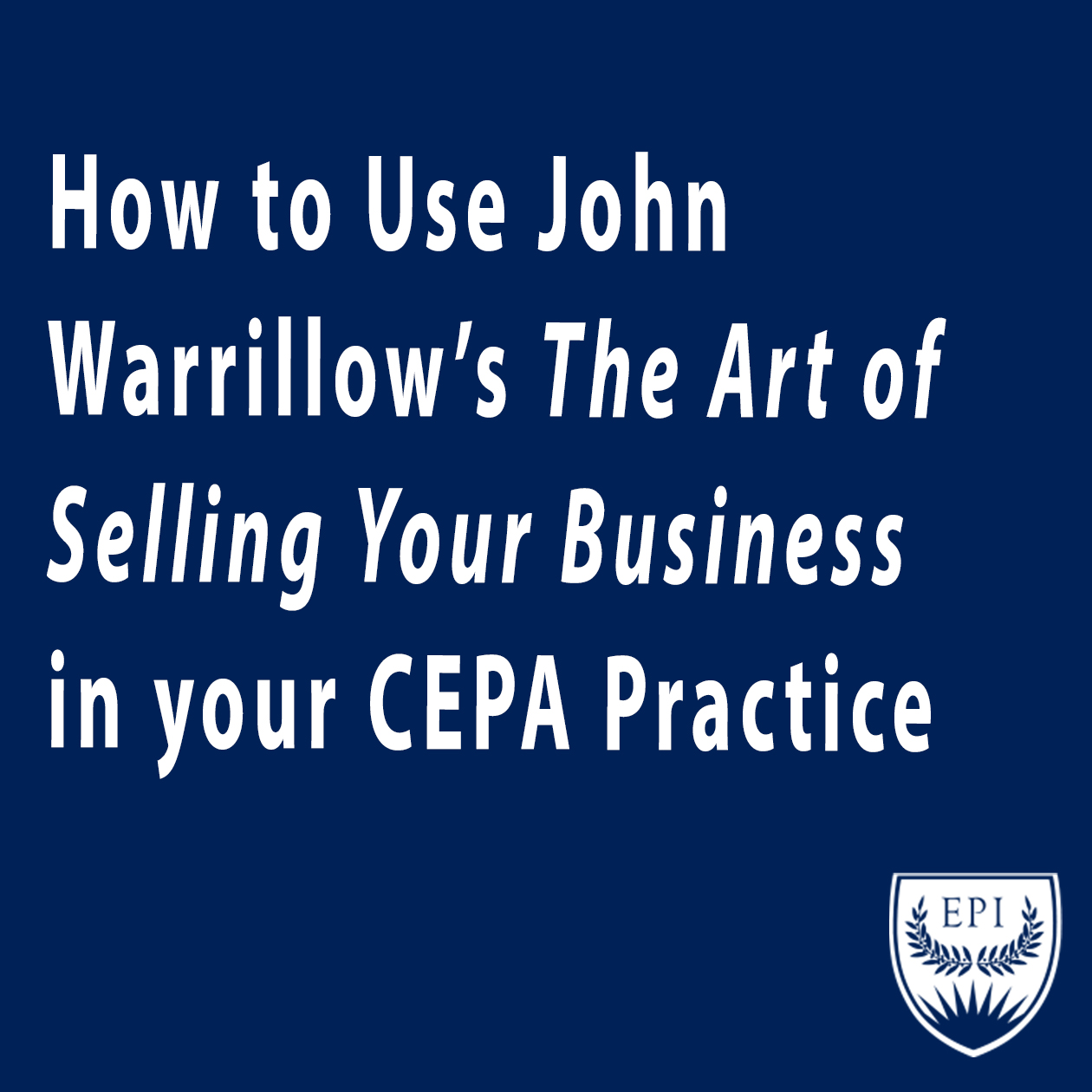
THE EXIT PLANNING BLOG
Keep up-to-date with exit planning, succession planning, industry trends, unique specialty insights, and useful content for professional advisors and business owners.
Share this
How to Make Your Business More Saleable (When 3 Out of 4 Don't Sell)
by Len Bruskiewitz on November 10, 2025

Here are two sobering statistics regarding the sale of small businesses:
- Only about 25% of businesses generating <$10 million in revenue that go up for sale actually sell. Source: Tom West/Business Brokerage Press, The Business Reference Guide, 15th Edition (Reference Found Here: https://45dayexit.com/amazingly-poor-business-sale-statistics/)
- Many financial advisors estimate that business owners have 80% of their net worth locked in their businesses. Source: Exit Planning Institutes 2023 National State of Owner Readiness Report
As daunting as this sounds, there are steps business owners can take that will increase the likelihood of unlocking the value they have built when they are ready to transition to their next great adventure. This blog covers some specific actions within the Value Acceleration Methodology™ framework that make a business more attractive to potential buyers (or family members if an intergenerational succession plan is the desired path) and how working with Exit Planning and Transition Advisors can streamline the process.
Focus on Your Strengths
Leading management experts (Donald Clifton and Marcus Buckingham, to name a few) teach that individuals have specific strengths and weaknesses, and it is more productive to leverage the great parts than try to fix the weak areas. Similarly, as a business owner builds value in their company, they should focus on the parts of the business that have the most potential and shed those components that are a drag on resources. Here are a few examples that illustrate this concept:
- Focus on 1 or 2 products that have great growth potential or generate above-average profits rather than investing in all products equally. From a revenue and profit generation perspective, this is another way of stating the Pareto Principle that 80% of the benefit comes from 20% of the effort. It follows that if a company gets more repetitions on fewer things, it will get better and better at them.
- Separate from customers/clients who are unprofitable or are a pain to work with. Customers who are not satisfied regardless of how much support they get are unlikely to change and it is better to part ways with them now. There is a short-term gain (less stress for the owner and better employee morale) and long-term benefit (potential buyers have no interest in inheriting high-maintenance/low profit accounts).
Get Independent from the Business
The ability for a business to operate effectively without the owner needing to be involved in every aspect of day-to-day operations is one of the most important factors impacting both the value of a company and the likelihood of it selling. Long-time business owners who have not documented processes on how things work or cannot delegate tasks to their employees seldom exit their businesses successfully. Here are some ways to move toward independence:
- Offload a few lower-value tasks to employees capable of handling them. If the assigned person can do a task at least 80% effectively as the owner, consider it a win and move on to the next task to delegate.
- Take time off without phone/computer access. A great indicator of independence is if the owner can unplug for 2 weeks without things falling apart. If this is too daunting, start with a few days, assess what breaks when the owner is not present, and then document how to fix the issues going forward.
Have Realistic Expectations
Buyers don’t care how hard an owner worked or how much they need to fund their retirement. The value of a company is ultimately based on an estimate of the profits the business will generate in the future, and how much risk there is that those profits will happen as predicted. Also, the exit preparation and business sale processes take time, typically measured in years. The items below help align expectations with reality.
- The best way to get a baseline of what a company is worth is to have a professional valuation done. This process combines historical financial performance, makes adjustments to revenue and expenses, projects out financial performance into the future, and uses several different methods to calculate the enterprise value today.
- Value Acceleration doesn’t happen overnight. A typical timeframe from implementing exit planning to the sale of the business is anywhere from 3-5 years. Taking the time to do the process right ultimately yields higher value and a greater chance of a successful sale.
How Do Value and Transition Advisors Help?
The experience of Value and Transition Advisors is extremely valuable in helping business owners improve their companies both in the short and long term, yielding reduced stress and higher enterprise value. Using a structured and proven approach, the Focal Point Coaching’s Value and Transition Advisor Team works to:
- Evaluate their business’s current readiness for a transition or sale.
- Develop and implement strategies that increase both operational efficiency and enterprise value.
- Create a roadmap for a successful exit, whether through a sale, succession, or other means.
Business owners work hard to create companies that support their families, employees, customers, vendors, and communities. By focusing on their strengths, creating entities that can thrive without them, and having realistic expectations on how value is created, they can increase the odds of a successful transition that unlocks the assets they have built over time.
Related Resources
- Strategic Partners and Tools Business Coaches Can Use to Enhance the Value Acceleration Methodology™
- The Importance of Reducing Owner Dependency in Your Business
- About Our Partner Network
Share this
- Blog (548)
- CEPA (431)
- exit planning (249)
- CEPA community (188)
- Business Owner (175)
- Exit Planning Summit (99)
- EPI Chapter Network (89)
- Value Acceleration Methodology (81)
- Exit Planning Partner Network (76)
- EPI Announcement (50)
- Content (48)
- Webinars (37)
- Excellence in Exit Planning Awards (34)
- Marketing (30)
- 2024 Exit Planning Summit (28)
- 5 Stages of Value Maturity (26)
- Books (24)
- EPI Academy (24)
- EPI Team (22)
- Exit Planning Teams (22)
- Leadership (21)
- 2023 Exit Planning Summit (20)
- family business (20)
- women in business (19)
- Intangible Capital (18)
- Exit Options (17)
- Black Friday (16)
- CPA (15)
- Walking to Destiny (15)
- Chapters (14)
- State of Owner Readiness (14)
- charitable intent (13)
- Chris Snider (12)
- National Accounts (12)
- Small business (12)
- personal planning (12)
- Financial Advisors (11)
- Season of Deals (9)
- 5 Ds (8)
- About us (8)
- Podcast (8)
- Scott Snider (8)
- Insiders Bash (7)
- Christmas (6)
- Exit Planning Content Library (6)
- Case Studies (5)
- Owner Roundtables (5)
- Three Legs of the Stool (5)
- Value Advisors (5)
- financial planning (5)
- Awards (4)
- Circle of Excellence (4)
- EPI Thought Leadership Council (4)
- Exit & Succession (4)
- Five Ds (4)
- executive training (4)
- DriveValue (3)
- Owners Forum (3)
- author (3)
- forbes (3)
- Exit Is Now Podcast (2)
- Peter Christman (2)
- Veteran (2)
- Whitepapers (2)
- Annual Exit (1)
- Business Owners Forum (1)
- SOOR (1)
- business consultants (1)
Subscribe by email
RELATED ARTICLES






